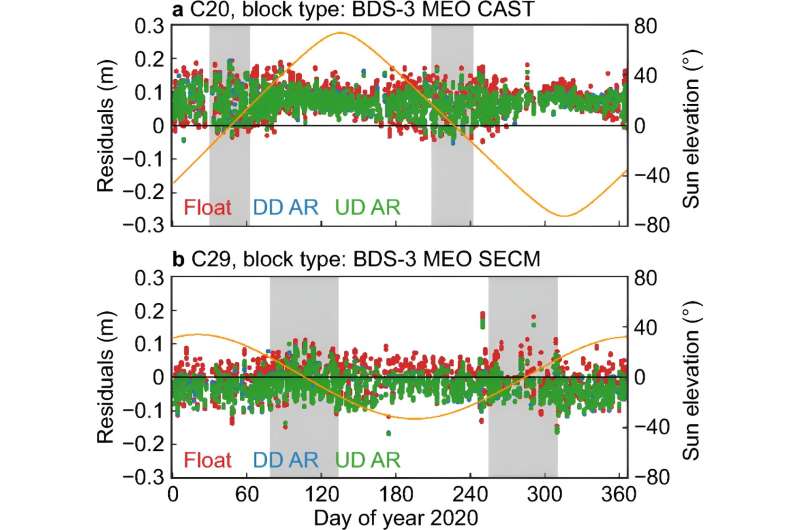
In the evolving Global Navigation Satellite Systems (GNSS) landscape, China's International GNSS Monitoring and Assessment System (iGMAS) stands out for its global monitoring and evaluation of GNSS constellations.
Crucial to enhancing GNSS data accuracy and reliability is resolving integer ambiguities in phase observations. Traditionally managed at the Double Differenced (DD) level to remove hardware delays, recent innovations now allow Integer Ambiguity Resolution (IAR) at the Un-Differenced (UD) level, eliminating the need for baselines and streamlining the process.
Researchers from iGMAS and its Innovation Application Center (IAC) at Wuhan University have developed and validated an UD IAR approach for integrating quad-systems, including the Global Positioning System (GPS), BeiDou, Galileo, and Global'naya Navigatsionnaya Sputnikovaya Sistema (GLONASS). Published in the journal Satellite Navigation on April 8, 2024, their research demonstrates significant enhancements in GNSS precise data processing.
The UD IAR technique, by directly calibrating ambiguities from raw carrier phase data into "carrier range" data, bypasses the complex calculations required by the traditional DD method. This innovation not only simplifies the ambiguity resolution process but also increases the resolved integer ambiguities by up to 9%.
With a 70% reduction in computational workload, this approach provides a way in the data processing of extensive GNSS networks, with widespread implications from improving autonomous vehicle and aircraft navigation systems to enhancing global environmental monitoring.
Professor Xingxing Li, a leading satellite navigation expert from Wuhan University, highlighted the transformative potential of the UD IAR method, stating, "This work not only improves the accuracy of GNSS precise orbit determination and clock estimation but also simplifies global satellite navigation data processing. It represents an advancement in our ability to provide more reliable and precise GNSS products globally."
This study represents a significant leap toward achieving more reliable, precise, and efficient satellite navigation capabilities, promising to promote the application of this technology across various areas.
More information: Jiaqi Wu et al, Orbit and clock products for quad-system satellites with undifferenced ambiguity fixing approach, Satellite Navigation (2024). DOI: 10.1186/s43020-024-00128-7
Provided by TranSpread
Citation: Navigating the future: Researchers improve satellite navigation processing accuracy and speed (2024, April 15) retrieved 15 April 2024 from https://techxplore.com/news/2024-04-future-satellite-accuracy.html
This document is subject to copyright. Apart from any fair dealing for the purpose of private study or research, no part may be reproduced without the written permission. The content is provided for information purposes only.
